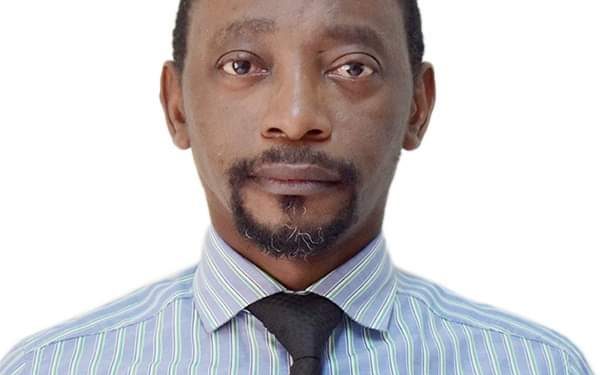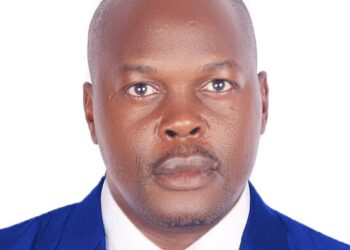The Directorate of Medical Services at the UPDF should undertake a cardiovascular risk profile for EVERY officer from the rank of 2nd Lieutenant and above. The medical should actually start from the top, downwards. Officer Cadets can be spared because they are usually undergoing or have just completed a rigorous training that involved a lot of physical exertion.
In fact, the medical is also needed for all people like me who are above 40 years (I have done it too and spotted some cracks in my once invincible system and immediately taken some actions to stop the cracks from becoming crashes). The evaluation should include:
History
– Physical activity levels: Do they achieve at least 150 minutes of moderate intensity physical activity in a week or 75 minutes of high intensity/anaerobic activity. Higher rank officers are likely to operate as arm-chair soldiers hence a substantial reduction in physical activity levels, some of them becoming very very sedentary
– Diet: Is their diet high in saturated fats and refined sugar, with above average servings and low in fruits and vegetables? This naturally happens as disposable income increases in Uganda, while it is the reverse in Europe.
– Habits: Are they actively involved in some dangerous habits (some of them common in the military), specifically ‘dangerous alcohol taking’ (more than 3 standard drinks a day or massive binges, cigarette smoking, regular high-calorie snacking with ‘carbohydrate and fat cravings’
– Mental Health: Have they recently experienced severe stress, or past stresses that have created anxiety, sleep disturbances, compulsive behaviours, substantial mood changes, PTSD, or depression? Do they use any opioids, weed, or related substances?
Examination
-BMI: Is their BMI (the ratio of their weight to the square of their height) above 25 and if so, is it above 30 (very bad)? This is not uncommon in arm-chair soldiers
-Waist Circumference: A measure of abdominal obesity, which is a more deleterious form of obesity because it means that large amounts of ‘hard-to-burn’ fats are resting in the abdomen and these same fats love to rest in the vessels. Sometimes it is quite obvious from the size of one’s abdomen. It should be measured using the ‘nutritional waist’ not the ‘anatomical waist. A measurement above 94 is not good and above 100 is very bad; sometimes they assess the waist-hip ratio
-BP: Any blood pressures that are consistently at or above 140 (systolic) and 90 (diastolic) after several measurements should ring an alarm bell. 1 in 4 Ugandans has hypertension and the percentage increases substantially after age 40
-ECG: Using an ECG machine, physicians look at the electrical activity of the heart to detect ‘silent’ heart disease especially thickening of the heart muscle (e.g. from long-standing high-blood pressure and quite common in middle aged people in Uganda), clues on blockage of key blood supply lines to the heart muscle or whether the heart muscle is completely grid-locked, and signs of abnormal heart rhythm (arrthythmias, which are quite common in Uganda)
– Exercise tolerance: Not mandatory and if done, it should be with extreme caution as several officers could drop from serious exercise intolerance
Blood work-up
-Fasting blood fats (or lipids) to check for levels of bad-cholesterol vs good cholesterol and total cholesterol
-Fasting blood glucose (values above 6.0 are not good and above 6.9 are quite bad
-Hemoglobin A1C (or glycated hemoglobin) as a measure of average blood sugar levels over 3 months (values above 5.6 are not good and above 6.4 are quite bad)
– Liver function tests: To check if there are levels of liver enzymes that suggest sudden or long-term injury to the liver from nutrition and alcohol related diseases
– Kidney function tests: To check if there are levels of chemicals in the blood that suggest sudden or long-term kidney disease; 1 in 6 Ugandans in periurban areas have ‘significant’ reduction in kidney function, mainly driven by hypertension
– Blood clotting functions: (INR, Bleeding Time, Prothrombin Time) Tests to gauge if the person has either a tendency to form clots (clotting disease) or a tendency to blood for long, especially when the liver is ill
– Full blood count: To check for things like anaemia, high blood levels, possible infections
– Chronic Infections of concern: Hepatitis B, C, HIV, TB and COVID-19
Management – General
-All officers with hypertension should be started on one of many effective antihypertension meds
-All officers with diabetes should be started in appropriate medicines to lower their blood sugar
-All officers with high risk behaviours should be advised on a diet and physical activity plan, and supported with appropriate technologies and follow-up programs to stick to the plan; they should be empowered to do self-monitoring of some of these parameters like BMI, BP and they should undergo periodic re-checks
-All officers regardless of health status should re-checked every 3 years if they are above the age of 40, or have any of the risk factors. Those with diabetes
Management – Organ disease:
-All officers with a clot-forming tendency require EMERGENCY care in a specialized hospital setting; they should be given an anticlotting medicine as soon as possible and monitored constantly
-All officers with kidney disease should be started in an appropriate antihypertensive medicine with positive effects on the kidneys
-All with observable heart disease should be started on appropriate medicines either to reduce the BP, reduce blockage of vessels, correct abnormal rhythms or correct abnormal blood fats; life-threatening cases EMERGENCY care to prevent total blockage of the heart that can lead to a sudden or silent heart attach including medicines that widen the blood vessels or attention by an interventional cardiologist who may need to push a thin wire with a little balloon into their veins and into their heart vessels to try and unblock their grid-locked heart
– Those with liver disease should stop any habits that add to the injury (especially alcohol and cigarettes) and to take supportive medicine to allow the liver to repair itself. Those with total liver or kidney failure should seek a transplant.
Do you have a story in your community or an opinion to share with us: Email us at editorial@watchdoguganda.com













